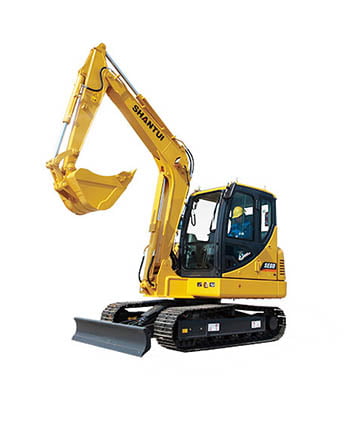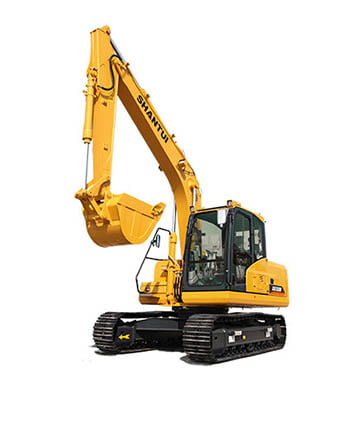How to Choose the Right Mini Excavator Ripper Tooth.If you own a mini excavator, you know how useful it is for construction, demolition, and landscaping projects. However, your excavator’s performance depends on the quality of its attachments. The ripper tooth is an essential attachment that you need to break and loosen up tough soil, rock, and concrete surfaces. Choosing the right mini excavator ripper tooth can improve your machine’s efficiency and productivity. In this article, we will guide you on how to choose the right mini excavator ripper tooth for your needs.
Understand Your Project Needs

Before choosing a mini excavator ripper tooth, you need to assess your project needs. You need to determine the type of material you will be working with, the hardness of the ground, and the depth of excavation required. This information will help you choose the right ripper tooth that will perform efficiently and effectively in your project.
Type of Material
The type of material you will be working with is essential in determining the type of ripper tooth to use. For instance, if you are working with rocky surfaces, you need a ripper tooth with a pointed tip to penetrate through the rock surfaces. However, if you are working with soil surfaces, you need a ripper tooth with a flat tip to loosen up the soil.
Ground Hardness
How to Choose the Right Mini Excavator Ripper Tooth.The ground hardness is crucial in determining the strength and durability of the ripper tooth. If you are working with hard and compact surfaces, you need a ripper tooth with a higher tensile strength and wear-resistant properties. On the other hand, if you are working with soft and loose surfaces, you need a ripper tooth with a lower tensile strength to avoid damaging the surface.
Depth of Excavation
The depth of excavation is essential in determining the length and width of the ripper tooth. If you are working on shallow surfaces, you need a shorter ripper tooth. However, if you are working on deep surfaces, you need a longer ripper tooth to penetrate through the ground.
Choose the Right Ripper Tooth Type

Once you understand your project needs, you need to choose the right ripper tooth type that will match your excavator’s weight and size. The most common types of ripper teeth are:
Single Shank Ripper Tooth
The single shank ripper tooth is the most common type of ripper tooth that is suitable for excavators with a weight of 4 to 45 tons. It has a single shank that penetrates through hard surfaces and breaks them into small pieces.
Multi-Shank Ripper Tooth
The multi-shank ripper tooth is suitable for excavators with a weight of 40 to 90 tons. It has multiple shanks that penetrate through hard surfaces and create a wider breaking area.
Grading Ripper Tooth
The grading ripper tooth is suitable for excavators with a weight of 5 to 25 tons. It has a flat tip that is used for grading and leveling surfaces.
Consider the Ripper Tooth Material
How to Choose the Right Mini Excavator Ripper Tooth.The ripper tooth material is crucial in determining its strength and durability. The most common ripper tooth materials are:
Steel
Steel ripper teeth are the most common type of ripper tooth material. They are suitable for standard construction and excavation projects. However, they are not suitable for abrasive and high-impact projects.
Carbide
Carbide ripper teeth are suitable for abrasive and high-impact projects. They have a high wear-resistant property and can withstand extreme temperatures. However, they are expensive compared to steel ripper teeth.
Cast Iron
Cast iron ripper teeth are suitable for light excavation and construction projects. They are cheaper compared to steel and carbide ripper teeth. However, they have
lower tensile strength and wear-resistant properties compared to steel and carbide ripper teeth.
Check the Ripper Tooth Size
The size of the ripper tooth is crucial in ensuring that it fits your excavator. You need to consider the length, width, and thickness of the ripper tooth. The ripper tooth size should match your excavator’s weight, size, and hydraulic power. You should also check the pin diameter, pin center distance, and pin-to-tip distance to ensure that it fits your excavator’s coupler.
Consider the Ripper Tooth Brand and Price
The brand and price of the ripper tooth are essential in determining its quality and durability. You should choose a reputable brand that offers high-quality ripper teeth. You should also compare the prices of different ripper teeth to get the best deal that fits your budget.
Maintain the Ripper Tooth
Maintaining the ripper tooth is crucial in ensuring its longevity and efficiency. You should follow the manufacturer’s maintenance guidelines to keep the ripper tooth in good condition. You should also inspect the ripper tooth regularly for any signs of wear and tear and replace it if necessary.
Conclusion
Choosing the right mini excavator ripper tooth is essential in ensuring your machine’s efficiency and productivity. You need to understand your project needs, choose the right ripper tooth type and material, check the size, consider the brand and price, and maintain the ripper tooth regularly. By following these guidelines, you can choose the right mini excavator ripper tooth that will perform efficiently and effectively in your project.
FAQs
- How do I determine the type of material I will be working with? You can determine the type of material you will be working with by conducting a soil analysis and site inspection.
- Can I use a single shank ripper tooth on soft surfaces? No, a single shank ripper tooth is not suitable for soft surfaces as it can damage the surface.
- How often should I inspect the ripper tooth for wear and tear? You should inspect the ripper tooth regularly, preferably after every project, and replace it if necessary.
- Are carbide ripper teeth suitable for standard construction and excavation projects? No, carbide ripper teeth are suitable for abrasive and high-impact projects.
- Can I use a ripper tooth with a longer length for shallow surfaces? No, you should use a shorter ripper tooth for shallow surfaces to avoid damaging the surface.

